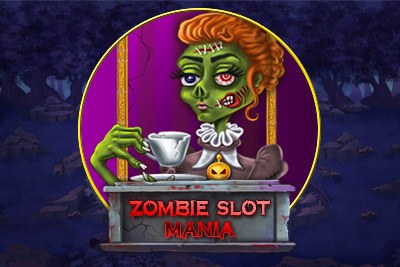04-02-2021
Graveyard Slot Meaning
Definition from Wiktionary, the free dictionary. Jump to navigation Jump to search. English Noun. Graveyard slot (plural graveyard slots) A time period during which a television audience is very small compared to other times of the day. Lot definition is - an object used as a counter in determining a question by chance. How to use lot in a sentence. Synonym Discussion of lot.
- Graveyard Slot Meaning English
- Graveyard Slot Meaning Urban Dictionary
- Graveyard Slot Meaning Dictionary
Also found in: Thesaurus, Financial, Acronyms, Idioms, Encyclopedia, Wikipedia.
graveyard shift
n.1. A work shift that runs during the early morning hours, as from midnight to 8 am.
American Heritage® Dictionary of the English Language, Fifth Edition. Copyright © 2016 by Houghton Mifflin Harcourt Publishing Company. Published by Houghton Mifflin Harcourt Publishing Company. All rights reserved.
graveyard shift
 n
n (Industrial Relations & HR Terms) US the working shift between midnight and morning
Collins English Dictionary – Complete and Unabridged, 12th Edition 2014 © HarperCollins Publishers 1991, 1994, 1998, 2000, 2003, 2006, 2007, 2009, 2011, 2014
grave′yard shift`
n.
1. a work shift usu. beginning at about midnight and continuing for about eight hours.
2. those who work this shift. Also called grave′yard watch`.
Graveyard Slot Meaning English
Random House Kernerman Webster's College Dictionary, © 2010 K Dictionaries Ltd. Copyright 2005, 1997, 1991 by Random House, Inc. All rights reserved.
| Noun | 1. | graveyard shift - the work shift during the night (as midnight to 8 a.m.) duty period, work shift, shift - the time period during which you are at work |
| 2. | graveyard shift - workers who work during the night (as midnight to 8 a.m.) shift - a crew of workers who work for a specific period of time |
Based on WordNet 3.0, Farlex clipart collection. © 2003-2012 Princeton University, Farlex Inc.

 Want to thank TFD for its existence? Tell a friend about us, add a link to this page, or visit the webmaster's page for free fun content.
Want to thank TFD for its existence? Tell a friend about us, add a link to this page, or visit the webmaster's page for free fun content. Link to this page:
Graveyard Slot Meaning Urban Dictionary
Have you ever wondered about the term 'Graveyard Shift’’?The term has come a long way from just being another time slot for laborersto come to work their shifts until dawns early light. The term has a quiteunnerving and more macabre origin altogether.
In Transylvania the superstitions are so strong that still to this day manybelieve that the dead may come back to life as a vampire or undead creature ifa stake is not driven through their hearts or their heads cut off.
Why would this superstition come to pass? Why would the myths of the undead,zombies and even vampires exist if there wasn't something that started them?Hundreds of years ago, and even thousands of years ago the medical technology wasnot capable to seeing when some were in a comatose state or not, thus peoplesometimes would be buried alive. Sadly, this attributes to the stories ofpeople crawling out of their graves, after being buried. Remember in certaincivilizations they did not embalm the bodies therefore their bodies were buriedfully in tact.
Things to add to the undead and the zombie folklore may have started withthe first mention of the undead creature in the fictional Sumerian story “TheEpic of Gilgamesh” where it is mentioned that Ishtar cried out in a fury andstated,
'Father give me the Bull of Heaven,
So he can kill Gilgamesh in his dwelling.
If you do not give me the Bull of Heaven,
I will knock down the Gates of the Netherworld,
I will smash the door posts, and leave the doors flat down,
and will let the dead go up to eat the living!
And the dead will outnumber the living!'
Ancient Sumerian, Greek, Roman and Egyptian mythology all originated fromAncient Babylon and their polytheistic and pagan beliefs. These beliefsincluded the stories of undead, demonic and even vampire like creatures whichare believed to be the precursor’s to inspire the famous vampire stories madefamous in the 18th
Graveyard Slot Meaning Dictionary
century.In the Middle Ages, the belief in a zombie like being thought of as the'Revenant' was wide spread. The belief that the souls of the deadwould return to earth and haunt the living was very common, especially forthose who were murdered. It was believed that they took on the form of askeleton or a decomposing corpse and roamed the graveyard at night.
As far as the name zombie, it has nothing to do with a dead, reanimatedcorpse at all. In fact in Voudoo belief and lore the zombie is nothing morethan a man or woman who is under the spell or control of another, basicallydoing the bidding of the one in control.

So how did the term graveyard shift even come to be then?
Graveyard shift comes from the time in the 1800’s when people would have oneperson, a night watch man sitting in the graveyard all night listening for thebell to ring.
What bell you ask?
Well you see, there were stories that when bodies hadbeen dug up in old cemeteries to make room to bury more people in thegraveyards they noticed many coffins had scratch marks from the inside of thecoffin, meaning that some had been ultimately buried alive and had suffocatedto death after burial.
This started a panic among many during the mid 1800’s. Writer and Poet,Edgar Allan Poe’s works, ‘The Premature Burial’, ‘ The Black Cat’ and ‘ TheCask of Amontillado’ mentioned scenarios such as being buried alive. This alsocaused more dread and fear during this time which actually influenced “safetycoffins” to be created.
Many mention the practice of not being buried as deeply as usually, and infact the hands of the dead would be sticking out of the ground. Then a stringwould be tied to the wrist of the dead person and a vast set of lines in a sortof network would tie into each other and be attached to a bell. When a certainbell would ring the night watchman would know where to run with his shovel toand dig up the buried person before they would suffocate. Some say the term 'dead ringer' came from this very sort of incident, however that is just a myth. In fact, the term 'dead ringer' is just another term for an exact duplicate or something that looks exactly like something else, or someone else.
Safety Coffins
In the case of the “safety coffins,” there were elaborate coffins affixedwith all sorts of gadgets that would allow a motion from the body to signal analert, raise a flag or even shoot fireworks to let the living know that they infact buried someone who wasn’t dead. Some of these coffins were even designedwith escape hatches, which would have been best used during the funeral and notso much six feet under, can you even imagine?
Although patent records show that the “safety coffins” were made andmanufactured at one point there is no record of any one claiming to havepurchased or used such a device, but then again…how would you know? Thecustomers who bought them, died apparently so they couldn’t really give areview of the product.
So basically, there you have it. A quick history lesson for you today. Now you know where the mythology and superstitions first camefrom, how little by little anxiety and fear added to the dread of being buriedalive, and how many attempted to prevent that from happening. I know a lot ofpeople who do not want to be buried when they die, for fear of waking up buriedalive. I believe a lot of this fear has to do with all of these stories andmovies that have been inspired by these old macabre tales.
I don't know about you, but being buried or burned in an incinerator soundsabout the same to me! Both sound equally frightening if you are alive when ithappens. Thankfully with modern day technology we know that the doctors aren'tgoing to send us to the mortuary unless we are really long gone, so don't letthis story scare you. If you live in Transylvania though, I suppose it may beanother story. I know one thing is for sure, I wouldn't want to be buried aliveonly to wake up thinking I am being rescued and find my rescuers driving astake through my heart!
J'aime Rubio (Copyright 2011)
